Storing carrots properly is the most important thing to helping the carrots keep their shape, color, crunchy texture, and flavor. In this post, you will learn the best tips for storing carrots at room temperature and in the refrigerator, as well as keeping them for long-term storage.
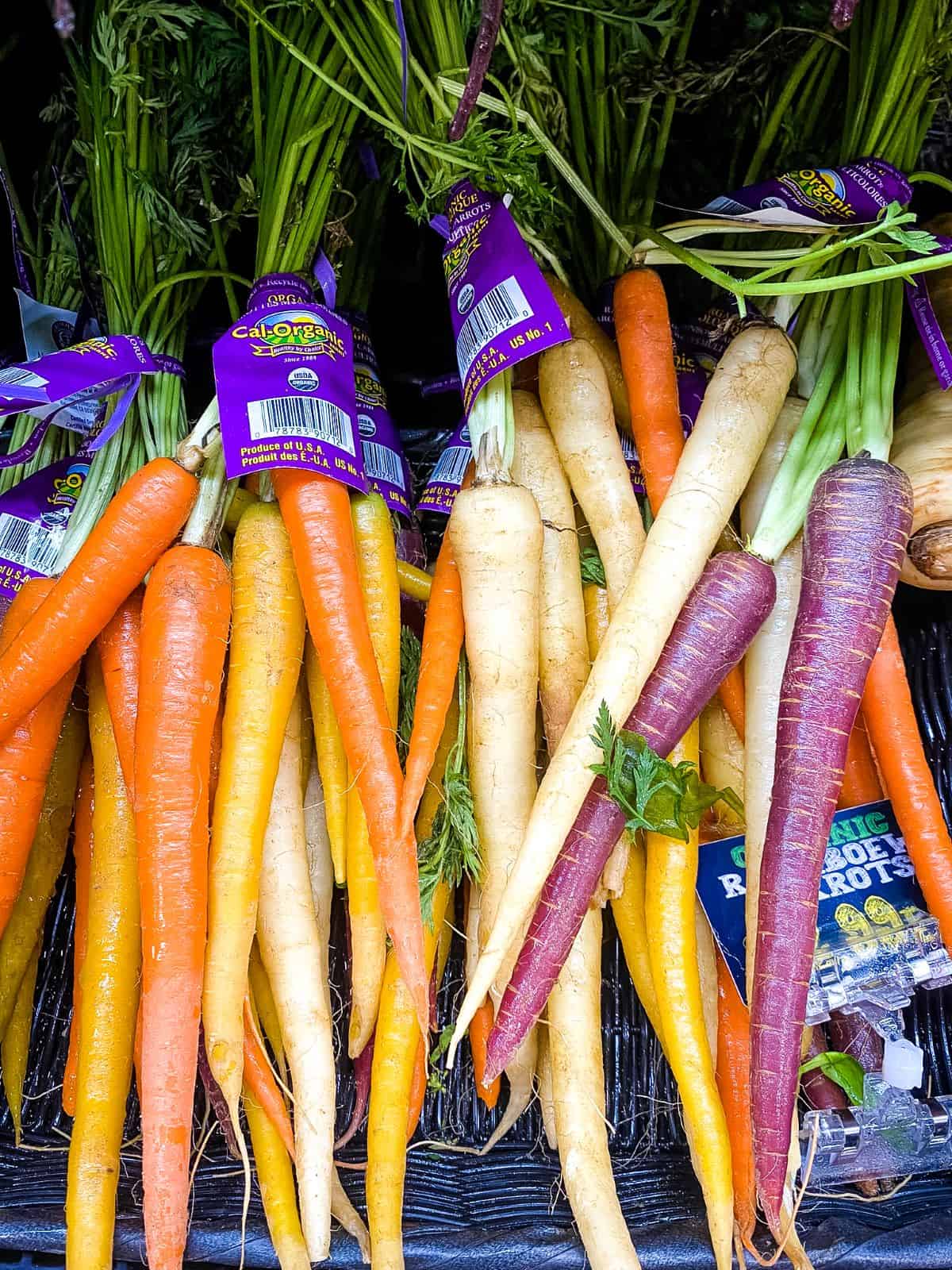
Oftentimes, carrots do not come with an expiration date so it's crucial to use your carrots as soon as you can.
All of these tips will help you see if your carrots are still safe to use and help you keep nice crunchy veggies to enjoy all year long.
Jump to:
- Should you wash carrots before storing?
- How long do carrots last at room temperature?
- How long do carrots last in the fridge?
- How long do cooked carrots last in the fridge?
- How do you tell if carrots have gone bad?
- General carrot storing tips
- Can you freeze carrots?
- Thawing frozen carrot tips
- Other ways to preserve and store carrots
- Our favorite recipes featuring carrots
- More topics to explore
Should you wash carrots before storing?
You should NOT wash your carrots before storing them. Most root vegetables, like carrots, have a nice outer waxy, protective layer that helps preserve the inner tender carrot.
When you wash and scrub your carrots, you're starting to break down and destroy this protective covering and in turn, decreasing the shelf life of carrots.
How long do carrots last at room temperature?
- If you choose to store your raw carrots at room temperature, be sure to place them in a cool, dark, dry place. Do not place them in a plastic bag, as the plastic bag will shorten their life expectancy and increase the chance of mold growth.
- Storing unpeeled carrots in a root cellar (a dark, cool place) is common and a great way to extend the shelf life of the carrots.
- Keep in mind that storing your carrots at room temperature for a couple of days, will cause the carrots to taste slightly sweeter than the ones stored in the refrigerator. This happens because when they are stored at warmer temperatures, like room temperature, compared to a colder refrigerator, the starches in the carrots tend to break down and decrease, while the sugars in the carrots start to increase and will give the carrots a sweeter taste.
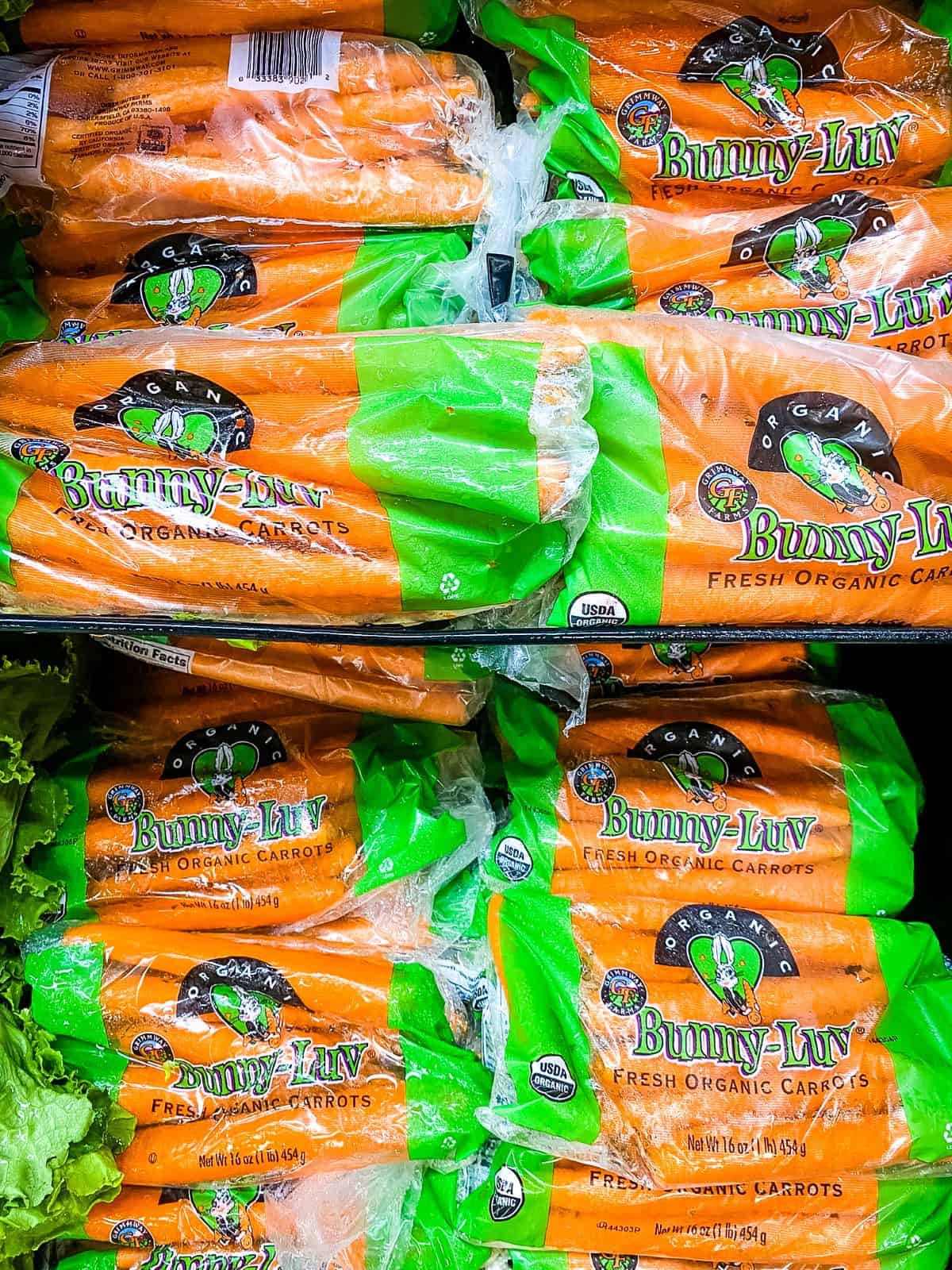
How long do carrots last in the fridge?
There are various ways you can store your carrots in the fridge to help preserve their shelf life. Choosing the proper storage method to store your raw carrots will depend on how long or fast you wish to use them.
Tips for refrigerating whole carrots:
- You can wrap the whole carrots in a few paper towels and store them in an airtight container in the fridge, you can place them in the vegetable drawer of the fridge with some parchment paper to absorb any moisture that's released while still keeping the carrots moist. Using a damp paper towel helps keep your bunch of carrots moist so they don't dry out. Be sure to check your carrots every couple of days to change the paper towels or parchment paper as necessary. Storing your whole carrots, either way, will help them last a month to 5 weeks in the refrigerator.
Tips for refrigerating baby carrots:
- When purchasing baby carrots in the grocery store, they commonly come in sealed plastic bags. Leave your baby carrots in this little bag until you were ready to use them. Once you have opened the bag and have started to use some of the carrots, transfer the rest of the baby carrots to a perforated Ziploc bag back inside the vegetable crisper bin.
- Baby carrots, which are cut carrots with the skin removed, last about a week or two less than full grown carrots. They are smaller, more delicate, and have a weaker protective outer skin that would help them last longer
Tips for refrigerating cut carrots:
- You should wrap your cut carrots in a damp paper towel before placing them in an airtight container or Ziploc bag in the refrigerator.
- Cut carrots that are prepared and ready to use in a recipe, will last in the fridge for about a week or two. Keep this in mind before you cut your carrots, make sure you will be ready to use them before they spoil.
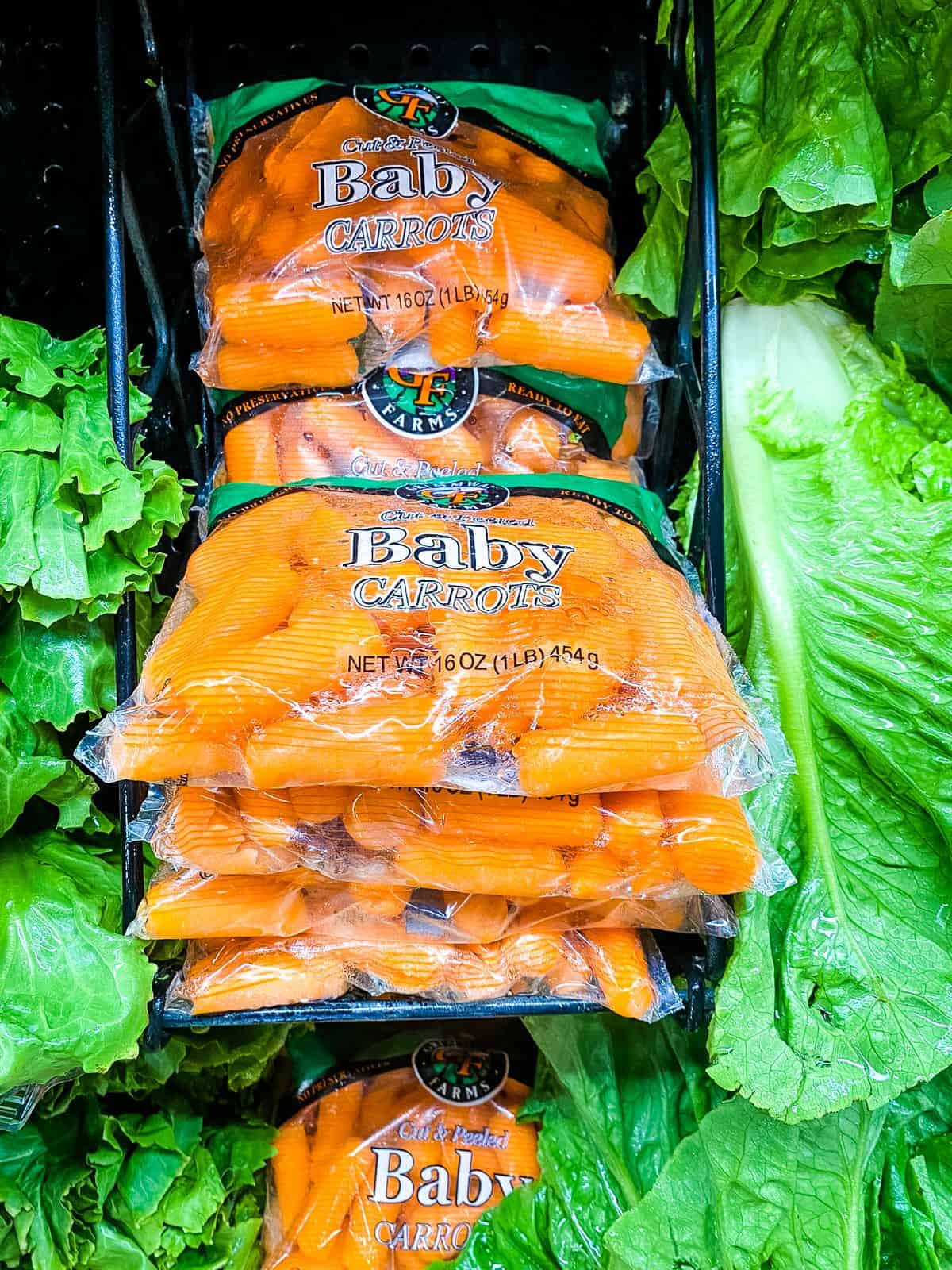
How long do cooked carrots last in the fridge?
After you've cooked your carrots, the best option is to store them in an airtight container and place them in the refrigerator for up to 3-5 days.
How do you tell if carrots have gone bad?
There are a few different ways to tell if your carrots have gone bad or are starting to go bad. Here are a few signs or things to look for to see if your carrots have gone bad:
- Look for any signs of white blush. White blush are tiny white dots on the carrots that start to show up when the carrot is dehydrated. Look all up and down the carrots to see if they have any white dots. If your carrots have white blush, they're still safe to eat, but they won't be as flavorful as fresh carrots. These carrots should be consumed as soon as possible as this is the first sign that they will be going bad and unsafe to eat soon. I recommend rinsing them off first to restore some hydration to the carrots before using them or eating them.
- Look for any black spots, which are fungus. Dark spots typically start to show up on carrots when they're stored at a high temperature and some moisture can start developing on the green tops if they're still attached. Some people think that black spots are a sign of rotten carrots, however, this is incorrect. The black dots are actually signs of infection and bacteria on your bad carrots. These carrots should be AVOIDED. DO NOT EAT THEM!
- If you have soft carrots or your carrots have a rubber-like texture, these are still safe to eat, but again, will not be as flavorful as fresh carrots.
- When your carrots are slimy or mushy, these carrots are NOT safe to eat. Do not eat slimy carrots.
- If your carrots have a funky smell, please toss them and do not eat them.
General carrot storing tips
- Wait to wash the carrots until you're ready to use them. Do not wash them before storage.
- Always remove the green carrot tops of the carrots as soon as possible. These tops will draw all the moisture away from the carrots, helping them spoil faster.
- If you plan to use your carrots within the next month or so, the best place to store them is in the refrigerator.
- If storing your own homegrown carrots, I recommend letting your carrots sit out in the sun for a day or two, this allows the outer skin of your carrots to dry out some before storing.
- Always store your carrots, whole, cut up, or baby carrots, in the coolest part of your fridge.
- Don't place carrots next to your apples, pears, ripe bananas, or other fruits that produce ethylene gas, as they speed up the spoiling process.
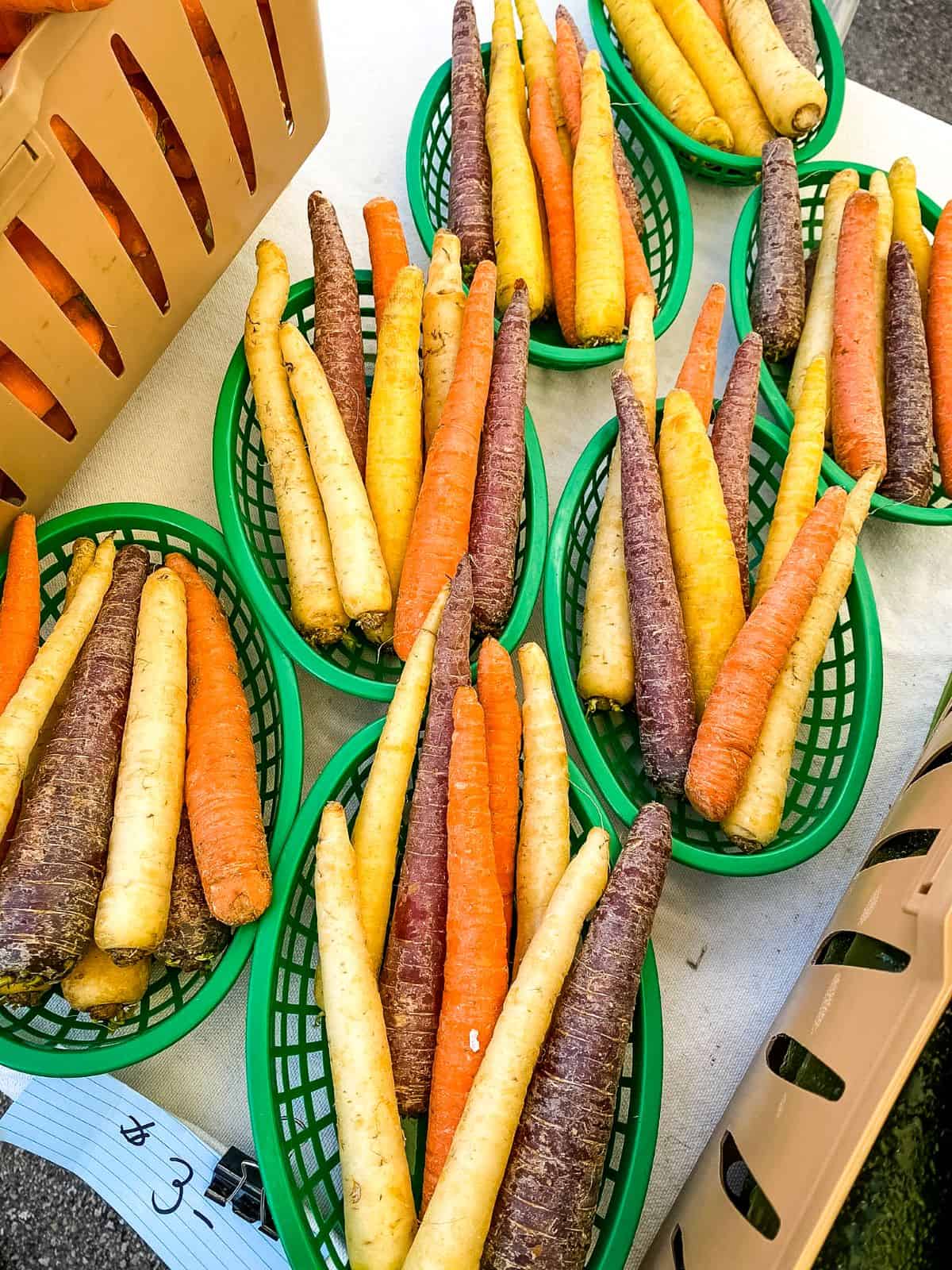
Can you freeze carrots?
You can freeze carrots! It's the perfect way to preserve them for an extended period of time. For best results, I recommend blanching your carrots first.
Here are my recommendations for the blanching process:
- Always remove the tops of the carrots before washing and peeling them.
- Next, chop or cut carrots into the pieces that you plan to use them for your recipes, you can cut them into carrot slices or dice them into small pieces for fried rice, etc. if you desire, otherwise leave the carrots whole.
- Fill a medium size mixing bowl with ice water, Line a baking sheet with parchment paper, and start boiling water in a pot on the stove.
- Toss the carrots into the boiling water on the stove and blanch them for 3 to 5 minutes. If you are using carrot slices they will take less time, whole carrots will require the full five minutes.
- Remove the carrots from the pot and place the carrots in the ice water bowl. It may be helpful to use a slotted spoon depending on the size of your carrots. Now you can let the carrots chill in the ice water for the same amount of time that you blanched them. Once that time has elapsed, drain the bowl and put the carrots on your parchment-lined tray.
- Next, use a kitchen towel or paper towels to pack the carrots dry before transferring the tray to the freezer so the carrots can have their initial freezing process.
- Finally, take the tray out from the freezer, transfer the carrots to a freezer safe bag, squeeze out the excess air, label it, and return the bag to the freezer. You can freeze these blanched carrots for up to one year.
Thawing frozen carrot tips
Although it's not necessary, to thaw your frozen carrots, remove the frozen carrots from the freezer, and place them in the refrigerator to thaw overnight.
But, most recipes will be just fine if you use the carrots in their frozen state, leaving no need to thaw them first.
If you need to thaw the carrots faster, you can place the bag of frozen carrots into a bowl of cold water. Change the cold water out every 30 minutes until the carrots are fully thawed.
If you don't plan to use these thawed carrots in the next two hours, store them in the refrigerator until you are ready to use them. This will help reduce the risk of starting to grow bacteria.
Other ways to preserve and store carrots
There are various other ways to store your carrots and fresh vegetables. Other options to preserve them include dehydrating or using a water bath.
While most of the suggestions we've already have said included keeping the unpeeled carrots dry or moist while storing them, some sources believe you can use a water bath and completely submerge your unpeeled carrots in a bowl of water to help them stay crisp, and fresh, and prolong their shelf life.
Some people also suggest storing your raw carrots, upright in a jar or container of water. If you choose to store your carrots submerged in water, be sure to change the water every 4 to 5 days to avoid the growth of bacteria.
I would also recommend rinsing and washing carrots again before using them just in case any bacteria has started to grow and change the water the previous time.
Knowing all of the ways to store your carrots, both in and out of the fridge is pertinent to enjoying these carrots for a longer time and extending the shelf life of your carrots.
You can apply these tips to your own carrots you grow in your home garden, or the carrots you buy at the grocery store and the farmer’s market.
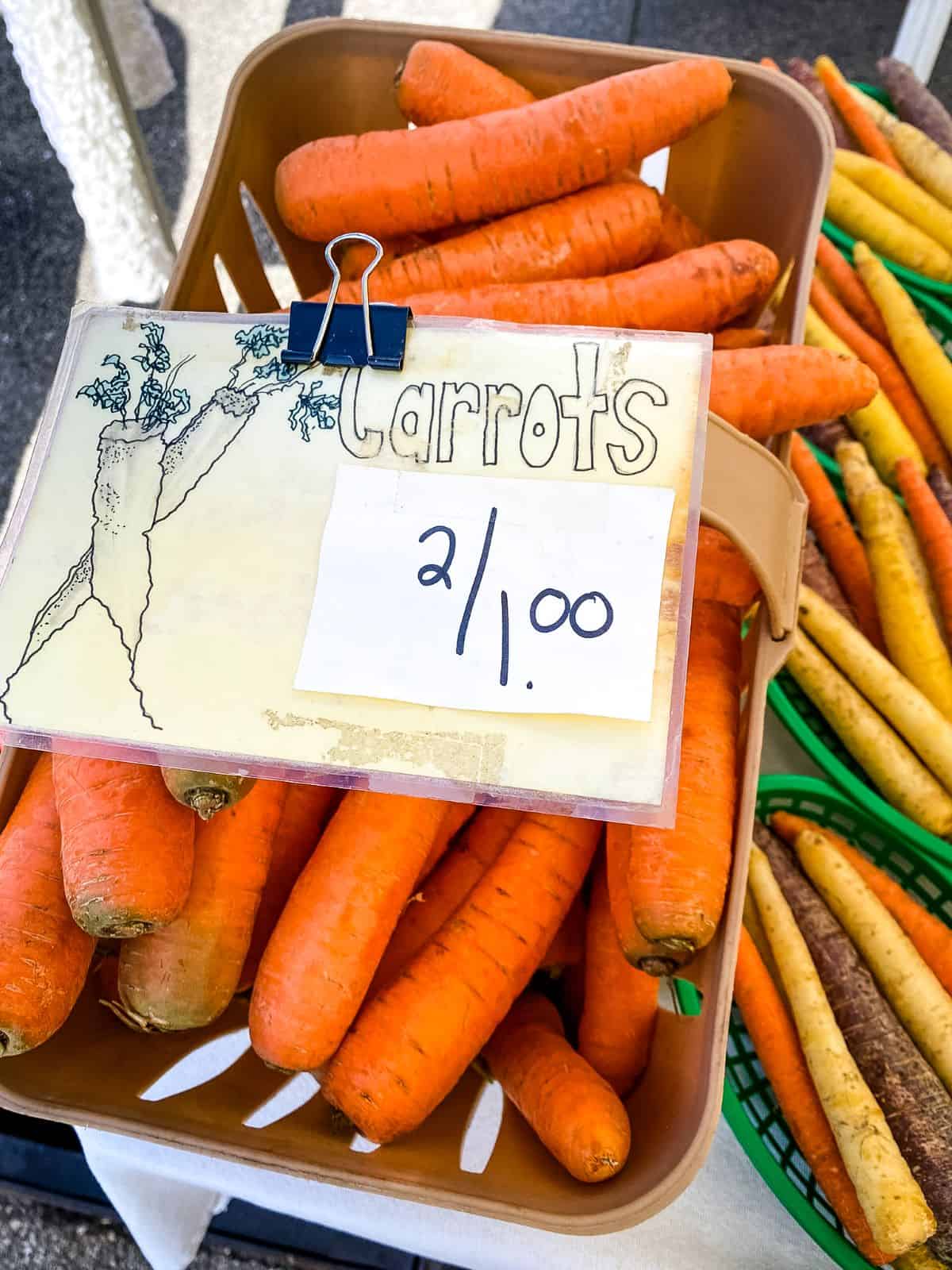
Our favorite recipes featuring carrots
More topics to explore
- How long do potatoes last?
- How long does spinach last?
- How long do blueberries last?
- How long do strawberries last?
- How long do avocados last?
©Watch Learn Eat. All content and images are copyright protected, and are not to be used or republished without prior permission.


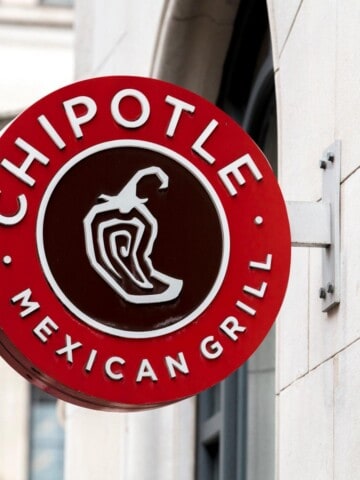

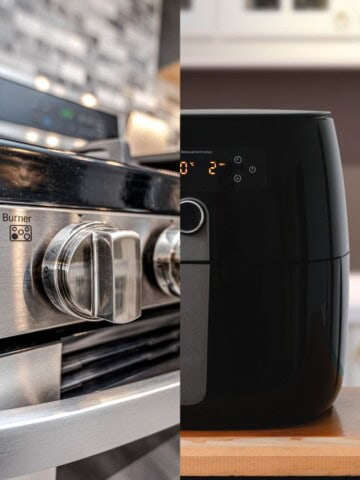
Leave a Reply